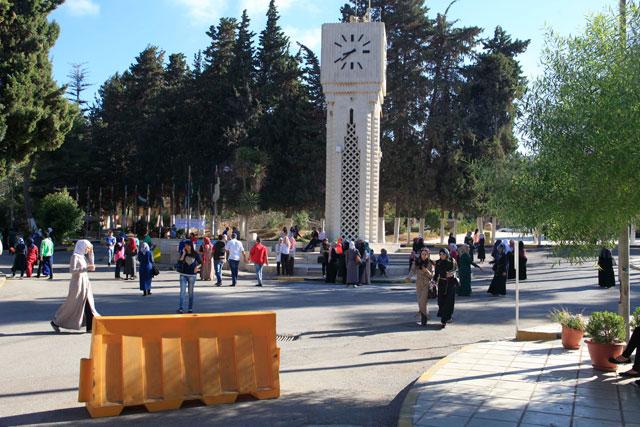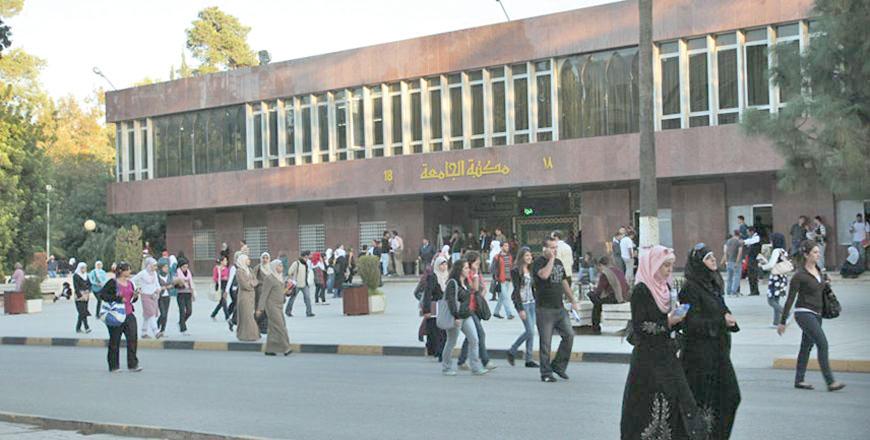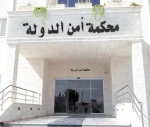You are here
Student campaign takes official steps to denounce police status granted to university guards
By Suzanna Goussous - Aug 02,2018 - Last updated at Aug 02,2018
AMMAN — The National Campaign for Defending Students' Rights (Thabahtoona) on Thursday submitted a memo to the National Centre of Human Rights to denounce the decision of granting university security guards the law enforcement status.
The memo, which was delivered during a sit-in organised in front of the centre, stressed Thabahtoona's rejection of the decision, stressing that it would be a “serious threat” to the students' freedom of expression and movement on campus.
“The decision to grant the guards the law enforcement status before raising the registration fees was not arbitrary,” Fakher Daas, coordinator of Thabahtoona, said in the memo, adding "two weeks ago, students at the University of Jordan [UJ] protested a decision to raise registration fees, which led to the reversal of the decision… this indicates that student movements and activists on campus won’t be silenced over similar decisions in future, which explains granting the guards the official police status.”
Announced by the UJ mid-July, the decision sparked outrage among students from universities across the Kingdom. Under the decision, university security guards may arrest students over acts considered as violation of laws without referring to a higher authority.
“Student activities through movements or blocs on campus are already limited; perhaps only two universities qualify as somewhat ‘flexible’ towards student movements — other universities, however, witness restrictions, with the absence of freedom of expression and a functioning student union,” the campaign coordinator told The Jordan Times during the sit-in.
He said that, with the implementation of the decision, the student activism and youth political participation rates will witness "a major decline".
The memo stated: “Granting the law enforcement status to university guards allows them to detain and refer students to court or the general prosecutor, without reference to the Deanship of Student Affairs or the presidency of the university, which gives the university guards a higher authority over the university administration.”
Officials at the university were not available to comment, despite several attempts by The Jordan Times.
Engineering student at UJ Alaa Hajjeh said the law enforcement status would “oppress” students and “narrow-down the sphere for organising activities on campus”.
“We fear the consequences of the decision as it endorses fear among university students, holding them back from taking part in any movement demanding rights or taking part in activities organised by political blocs at the university,” the fifth year student said, adding “in 2016, during the open-ended protest at UJ, there were many cases where dozens of students were referred to an investigation committee only for participating or expressing their opinions in demonstrations that demand basic rights.”
“There is a huge gap between speeches that encourage political freedom in Jordan and the implementation of these speeches,” he said.
National Human Rights Centre Commissioner General Musa Breizat said the centre will contact university administrations and government officials involved in the decision-making process and evaluate the criteria taken into consideration, in addition to assessing the requests outlined in the memo.
Related Articles
AMMAN — As the Ministry of Higher Education examines a plan to give security personnel at universities law enforcement status, university st
AMMAN — The National Campaign for Students' Rights (Thabahtoona) on Saturday called on student groups and human rights organisations to “tak
AMMAN — The Lower House on Tuesday passed the 2018 public universities law under which security personnel at universities are granted condit
















